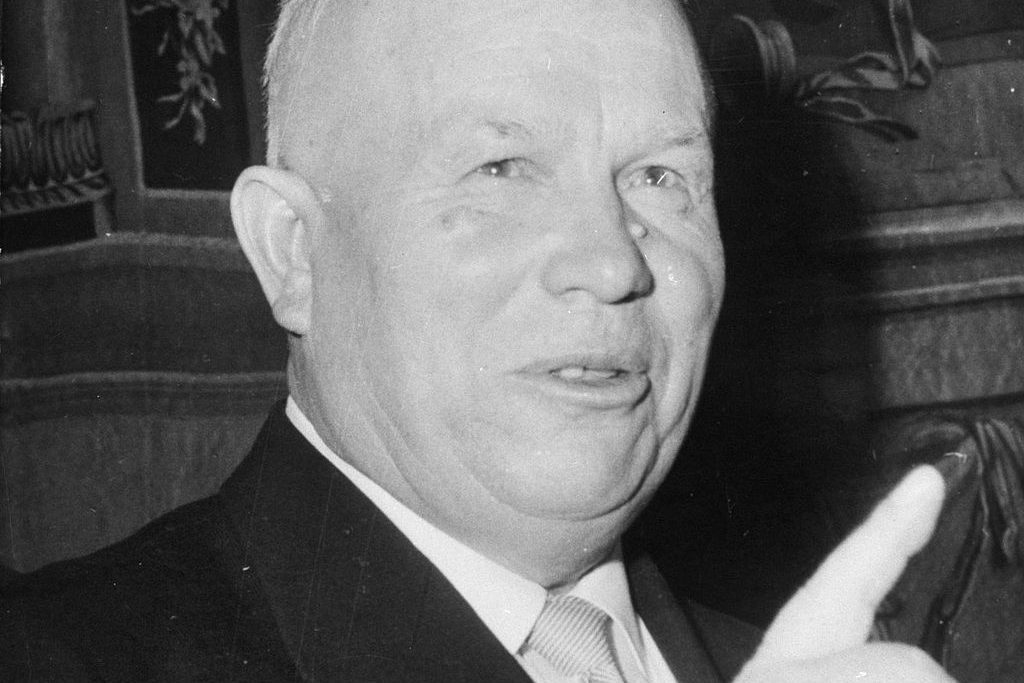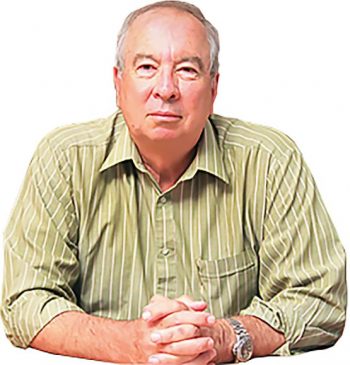
The Radio Yerevan jokes, also known as Armenian Radio jokes, have been popular in the Soviet Union and other countries of the former Communist eastern bloc since the second half of the 20th century, writes Whimsy columnist CLIVE WILLIAMS.
In Soviet society, where you could be sent to Siberia for speaking out openly, few Russians openly criticised the government. They expressed their views in the form of jokes – which they called anekdoty (anecdotes). The security service knew about these anekdoty, and you could be arrested for telling them.

Radio Yerevan anekdoty are based on the popular Russian perception of Armenians as “clever but subversive”. They always start with “This is Radio Yerevan; our listeners asked us…” followed by the response “We’re answering…” as below:
This is Radio Yerevan; our listeners asked us: “Is it possible to build Communism in America?”
We’re answering: “It’s possible, but then who will we buy grain from?”
“When the final phase of socialism, Communism, is built, will there still be thefts and pilfering?”
“No, because everything will have been thieved or pilfered.”
“What is the most permanent feature of our socialist economy?”
“Temporary shortages.”
“Is it true that American skyscrapers are the tallest in the world?”
“It’s true, but on the other hand Soviet-made transistors are the largest in the world.”
“What will be the results of the next election?”
“Nobody knows. Somebody stole the results.”
“Why did you not broadcast for such a long time?”
“The previous announcer, while reading: ‘Socialism is nothing as compared with Communism’, made too long a pause after the word ‘nothing’.”
“We’re told that a time of plenty is on the horizon.”
“But how do we reach the horizon?”
“What should we do if the Western borders of the USSR are opened?”
“Move to Siberia to avoid the stampede.”
“Will the police and KGB still exist when perfect Communism is built?”
“Of course not. Comrade citizens will be expected to arrest themselves.”
“What to do if a man takes a seat near you and starts to sigh?”
“Warn him to stop his anti-Soviet propaganda.”
“Why did the man who shot at a government limousine on Red Square miss the target?”
“Because citizens next to him wrestled the gun from him so they could shoot instead.”
“What is the duration of the workday in a socialist country?”
“As in the West, it’s based on an eight-hour system: from eight am to eight pm.”
“What is an exchange of opinions?”
“You walk into your boss’s office with your opinion and you walk out with his.”
“What is a Soviet musical duet?”
“A Soviet quartet after playing abroad.”
“Why is our government not in a hurry to land our men on the moon?”
“Because they might refuse to return.”
“Why do Soviet police always patrol in teams of three?”
“One knows how to read, the other to write, and the third one, naturally, has to keep watch on the two intellectuals.”
“What’s the difference between the Constitutions of the US and USSR – both guarantee freedom of speech?”
“Yes, but the US constitution guarantees freedom after the speech.”
“What is the difference between what is permitted and what is prohibited?”
“In England, what is permitted, is permitted, and what is prohibited, is prohibited. In America everything is permitted, except for what is prohibited. In the USSR, what is permitted is prohibited.”
To conclude with the seven paradoxes of the socialist state: Nobody works, but the plan is fulfilled. The plan is fulfilled, but the shelves are empty. The shelves are empty, but nobody starves. Nobody starves, but everybody’s unhappy. Everybody’s unhappy, but nobody complains. Nobody complains, but the jails are full.
“The rules are simple: they lie to us, we know they’re lying, they know we know they’re lying, but they keep lying to us, and we keep pretending to believe them.” ―Elena Gorokhova, A Mountain of Crumbs
Clive Williams is a Canberra columnist
Who can be trusted?
In a world of spin and confusion, there’s never been a more important time to support independent journalism in Canberra.
If you trust our work online and want to enforce the power of independent voices, I invite you to make a small contribution.
Every dollar of support is invested back into our journalism to help keep citynews.com.au strong and free.
Thank you,
Ian Meikle, editor





Leave a Reply